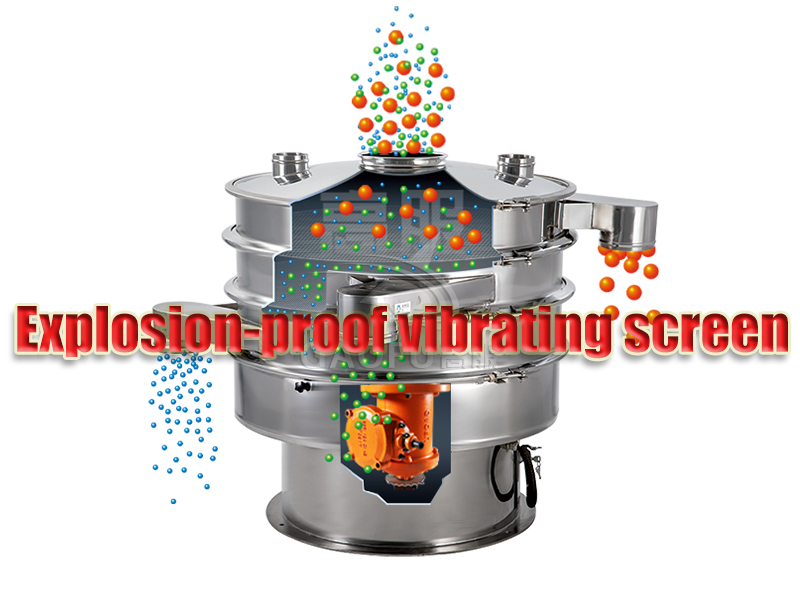The Alarming Scale of Dust Explosion Hazards
At a recent press conference, China’s Ministry of Emergency Management revealed that there are over 43,000 enterprises nationwide that are involved in dust-related explosion risks. These companies operate across various industries, including:
- Metal Processing
- Wood Products Manufacturing
- Agricultural and Byproduct Processing
- Textile Production
- Plastic and Rubber Product Manufacturing
This extensive list highlights a crucial fact: dust explosion risks are present in nearly every industrial sector.

Why Are Dust Explosions So Dangerous?
According to professional safety organizations, almost all industrial fields face explosion risks, whether due to combustible powders or residual dust from production processes. The presence of fine particles in industrial environments creates a highly volatile situation, especially when exposed to common ignition sources such as:
- Electrical sparks
- Mechanical friction heat
- Open flames
- Static electricity
Once a dust explosion occurs, the consequences can be catastrophic. The high-speed combustion reaction causes a rapid pressure increase, leading to:
✔ Severe Injuries and Loss of Life – Workers in the vicinity of an explosion face immediate danger from the blast wave, flying debris, and inhalation of toxic combustion byproducts.
✔ Massive Property Damage – Industrial equipment, production lines, and entire facilities can be destroyed within seconds.
✔ Production Shutdowns and Financial Losses – A single explosion can halt operations for weeks or months, causing devastating revenue losses.
Industries at the Highest Risk of Dust Explosions
While dust explosions are a universal threat in industrial environments, some sectors are particularly vulnerable. Industries that handle fine powders, flammable dust, or high-friction machinery are at an especially high risk. Some of the most affected sectors include:
🔥 Metal Processing – Aluminum, magnesium, and other metal dusts are highly combustible and can ignite with minimal friction.
🌳 Woodworking and Furniture Production – Sawdust and fine wood particles create an explosive atmosphere, especially in enclosed spaces.
🌾 Agricultural and Food Processing – Flour, sugar, grain dust, and other organic materials can form highly flammable dust clouds.
🧵 Textile Manufacturing – Fabric fibers and lint accumulate in the air, posing a constant fire and explosion risk.
🛠 Plastic and Rubber Manufacturing – Fine plastic particles and rubber dust can ignite under high temperatures or electrostatic discharge.
Each of these industries must take proactive steps to implement explosion-proof technologies and safety protocols to prevent devastating incidents.
How to Prevent Dust Explosions in Industrial Workplaces?
Since dust explosions are preventable, industries must prioritize comprehensive explosion protection measures. The most effective strategies include:
✅ Explosion-Proof Equipment Installation – Using dust-proof and anti-static vibrating screens, conveyors, and dust collection systems to prevent dust accumulation.
✅ Proper Ventilation and Dust Control – Ensuring industrial dust extraction systems are in place to remove airborne particles.
✅ Regular Safety Inspections – Conducting routine equipment checks to detect potential ignition sources before they cause an accident.
✅ Employee Safety Training – Educating workers on dust explosion risks and emergency response protocols to minimize casualties.
✅ Fire and Explosion Suppression Systems – Installing automatic fire suppression systems, explosion venting panels, and spark detection units to contain potential explosions.
By integrating these safety measures, industries can significantly reduce explosion risks and ensure a safer workplace for all employees.
The Urgent Need for Enhanced Explosion Protection
With over 43,000 companies at risk, dust explosion prevention should be a top priority for all industries. The reality is clear: without proper explosion protection measures, businesses are exposing their workers, facilities, and financial stability to severe risks.
💡 Safety should not be an afterthought—it should be built into every stage of industrial operations.
🏭 Investing in explosion-proof equipment and safety training is not just a compliance requirement—it is a responsibility.
⚠ Ignoring the risks of dust explosions can lead to irreversible consequences.
By taking action now, businesses can protect their workforce, safeguard their assets, and ensure uninterrupted production for the future.
